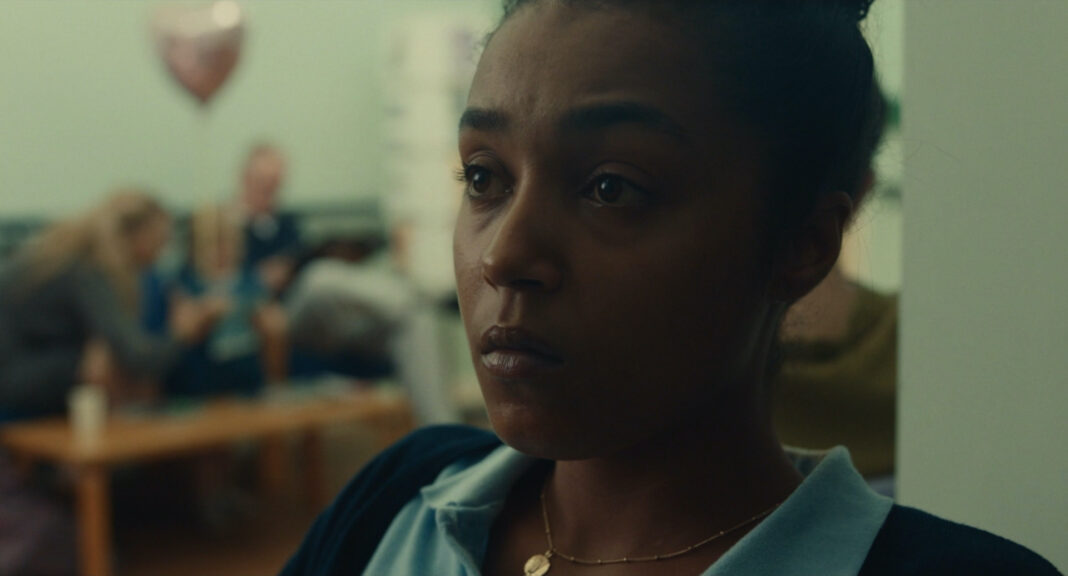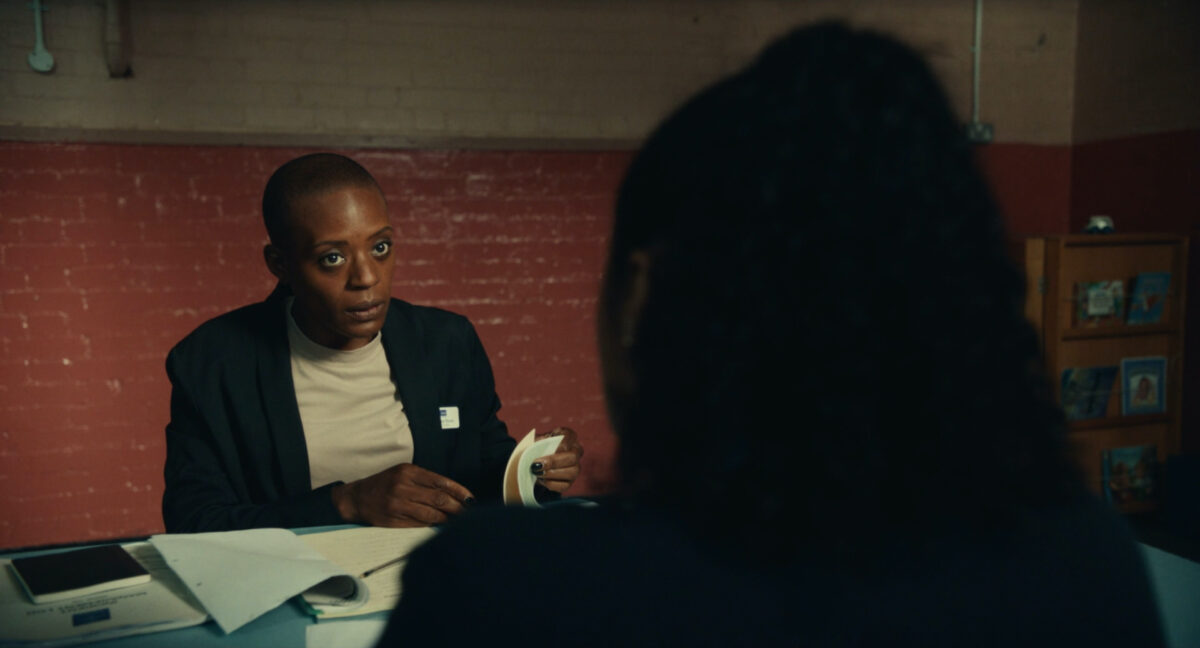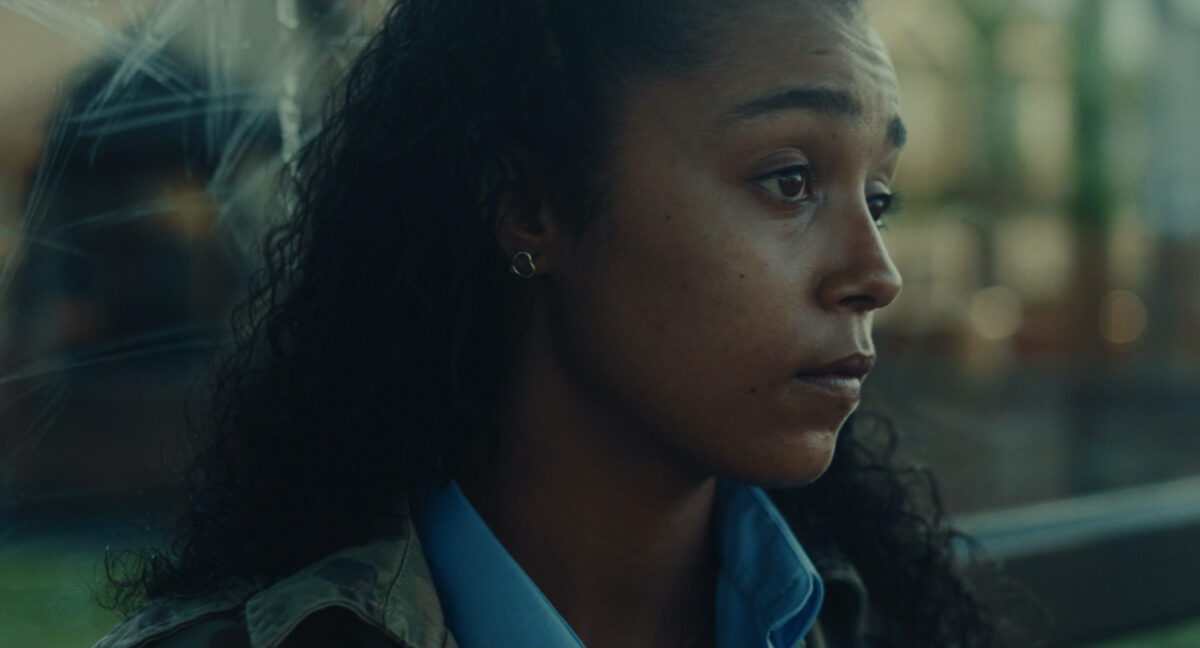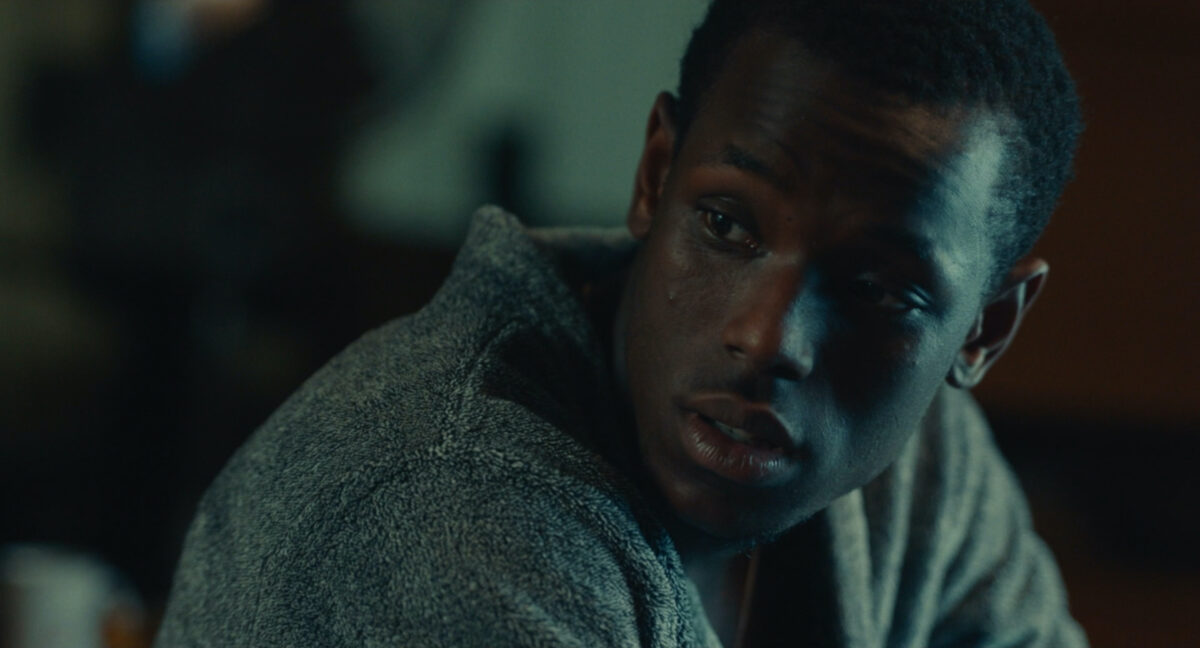Molly Manning Walker explores the after effects of personal trauma in the new acclaimed short GOOD THANKS, YOU?, which she based on her own personal experience.
Film And TV Now spoke with the film-maker about her experience making the film.
FILM AND TV NOW: The film deals with the lead character’s traumatic experience and the after-effects. We understand you went through a similar experience. When you wrote the screenplay, what were the challenges and how did you feel once you completed the script and shot the film?
MOLLY MANNING WALKER: It was very challenging process but it was also a project that was bubbling for 3ish years. I think subconsciously we made it at a time when I felt really good about the trauma. To be honest it’s always been something I wanted to talk about.
Even at the age of 16 I was confused as to why no one else wanted to talk about it. Throughout the process of making the film/funding it lots of people reached out to share their experience. I found peace in sharing the story and listening to others. Finishing the film felt like a chapter closed but a dialogue open.
FTVN:The film is based on suggestion rather than visual representation for the character, although we get brief glimpses of what she has gone through. Tell us about your working relationship with the actors.
MMW: It was a really amazing experience. We had both an onset therapist and a intimacy co-ordinator. We spent a lot of time in rehearsal making sure everyone was comfortable with the scene. Although it’s only shown for a flash in the film – we obviously had to film it for much longer. It was important to us that everyone knew they were in a safe space.
FTVN: Tell us about your cast.
MMW: Jasmine Jobson is the most wonderful actor. She is resilient and caring. She can turn on a deep sadness in the eye or switch to a cheeky glint. I saw her in a play about five years ago and knew I wanted her to play the role.
She was such a pleasure to work with. Both her and Michael Ward had just come off TOP BOY but it was yet to be released. We were really lucky that they were still doing shorts but about to be stars. Michael is a bouncy ball full of joy. He brought an unbelievable level of energy to the set.
He committed to everything and really got involved. We had a session with the therapist before the shoot (me and all the cast) and at first there was this stand off energy you know no one wants to admit they would like support. Michael was so inquisitive, he was super sensitive and appreciated the support of the therapist. It made us all relax into the idea of getting support. I’ll always remember that moment.
FTVN: Tell us about your production team.
MMW: We really pushed for females on the project. We managed to get mostly female HODS. It created a really trusting and safe environment. Sadly a lot of them had experienced assault. We were all really pushing for the same conversation to be opened up.
FTVN: Where did you shoot and for how long?
MMW: We shot for three days between Sutton and Beaconsfield.
FTVN: We see that you had a number of Kickstarter backers for the project in the end credits. How long did it take you to raise finance for the short?
MMW: We raised half the budget through auctioning female art work on Instagram. It was a sort of bonkers idea that I had when I realised that Kickstarters are really hard work. Anyway it worked really well all the artists donated work for free and we raised 9k and the rest of the money came from Vero. It took probably a year to raise the money.
FTVN: You are a graduate of NFTS. Tell us about your experience there and what were the key things you took away from it that you feel have benefitted you in the next chapter of your career?
MMW: NFTS is a total rollercoaster. It didn’t totally agree with me but I also think that was probably very good for me. It pushed me out of my comfort zone. I met a lot of amazing people there that I still collaborate with – I guess thats the most important thing.
FTVN: What issues and themes would you like to explore in future projects?
MMW: I’m still really interested in consent. Im interested in the perceived ‘grey area’. I’ve always been interested in sub cultures and different ways of growing up, teenage life in general.
FTVN: When you reflect on the overall power of film and the film-making community, what do you feel it does best and where do you feel it could do more?
MMW: My favourite cinema experiences have been those that have shaken me to the core. They’ve educated me but also made me think about it three years down the line. That’s when I think cinema is at its best.
FTVN: Your film has been doing really well on the Festival circuit, including Raindance where it was nominated for Best Short Film. How has this helped promote your film in the marketplace?
MMW: It’s really great to have the film doing the festival circuit. To me it was never about that. It was about opening up a conversation.
FTVN: The film could also be used as a point of reference for charities and psychologists. Are there plans to show the film to highlight the issues it portrays to these groups?
MMW: Yes and no. I think the film can be retraumatising for survivors. I think it would be useful to give it to the legal sector /police force.
FTVN: How has the pandemic affected your development and evolution as a film-maker?
MMW: You know what it’s actually been amazing for me. Apart from trying generally to see the positive. I managed to write the first draft of a feature in the first lock down and that would never of happened if the whole world hadn’t stopped so I feel super lucky.
FTVN: Finally, what are you most proud of about the short film?
MMW: I’m proud of the 100s of messages that I got saying me too. The world should talk and share trauma more often.
































